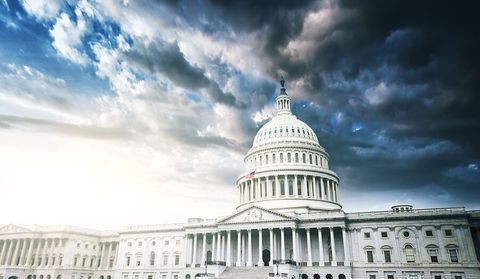E-Discovery and Information Management
Overview
Preventing and Resolving Disputes Through Efficient, Strategic Use of ESI
Electronically stored information (ESI) is at the core of nearly every business process and decision. A critical asset, it can also be the source of a company’s greatest risks — particularly in an era of remote work and increased use of social media, business messaging apps, and other platforms that connect employees, vendors, and customers worldwide.
Crowell’s E-Discovery and Information Management group draws on our highly experienced lawyers, IT/technical professionals, and project managers to minimize clients’ exposure, develop and deploy effective dispute-resolution strategies, and implement proactive best practices.
While E-Discovery platforms are designed to handle high-volume document reviews and minimize costs, the E-Discovery process — in experienced hands — can deliver a host of additional benefits. Our experienced team can rapidly identify critical information, ensure evidence is preserved, and develop a proactive strategy that can efficiently navigate even the thorniest investigations, or help build a strong base for litigations both big and small.
Insights
Event | 04.10.25
Client Alert | less than 1 min read | 04.03.25
Insights
- |
03.26.25
Corporate Counsel
E-Discovery – What is 'Proportional' in the Era of Expanding Data?
|01.09.18
Crowell & Moring's Litigation Forecast 2018
Litigation Forecast 2016: What Corporate Counsel Need to Know for the Coming Year
|01.19.16
a Crowell & Moring LLP publication
The Sedona Conference Commentary on Privacy and Information Security: Principles and Guidelines for Lawyers, Law Firms, and Other Legal Service Providers
|01.01.16
17 Sedona Conf. J. 1
WG11 Data Breach Response Guide
|12.01.15
The Sedona Conference Annual Meeting, Working Group 11 on Data Security and Privacy Liability
Crowell & Moring Adds Senior Counsel To eDiscovery & Information Management Practice
|10.31.18
The Cybersecurity Law Report
"e-Discovery within Law Firms - Finding the Right Fit: Internal Teams vs. Outsourcing vs. Hybrid Models," The Masters Conference - 2024 New York
|07.24.24
"An Evolving Playbook: Privilege Protection and Logging,” Consilio Symposium 2024
|06.11.24
Don’t fall short in your disclosure obligations: In re Opioid litigations.
|10.25.21
Crowell & Moring’s Data Law Insights
Fifth Circuit Bolsters Company’s Claim for Return of Privileged Documents Seized by Government
|08.02.21
Crowell & Moring’s Data Law Insights
- |
03.25.21
Crowell & Moring’s Data Law Insights
Federal Court Supports Discretion In Party Use of Technology Assisted Review
|02.17.21
Crowell & Moring’s Data Law Insights
Trade Secret Litigation Strategies: Tools for Managing Costs
|09.10.20
Crowell & Moring’s Trade Secrets Trends
- |
07.21.20
Crowell & Moring’s Data Law Insights
How to Limit Litigation Risk from the Increased Use of Chat Programs During the COVID-19 Pandemic
|06.12.20
Crowell & Moring’s Data Law Insights
- |
03.25.20
Crowell & Moring’s Data Law Insights
Court Rules Personal Privacy Interests May Impact Scope of Discovery for Text Messages
|03.18.20
Crowell & Moring's Data Law Insights
Professionals
Insights
Event | 04.10.25
Client Alert | less than 1 min read | 04.03.25
Insights
Event | 04.10.25
Client Alert | less than 1 min read | 04.03.25















